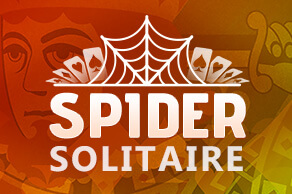China and India have a huge problem with racism toward black people
Just minutes before his birthday, Masonda Ketanda Olivier was beaten to death. The Congolese national was confronted by a mob of men late at night last Friday in New Delhi and killed. Police said the incident was a dispute over the hiring of an autorickshaw; Olivier's friend, an Ivorian national, said it was a clear hate crime, with racial epithets repeatedly invoked.
This week, irate African diplomats in the Indian capital pointed to Olivier's murder as evidence of wider discrimination and bigotry against black people who visit and live in India. Olivier, who reports indicate was about to turn 24, was teaching French.
"The Indian government is strongly enjoined to take urgent steps to guarantee the safety of Africans in India including appropriate programmes of public awareness that will address the problem of racism and Afro-phobia in India," Alem Tsehage, the Eritrean ambassador and the diplomat representing other African envoys in New Delhi, said in a statement. They also warned against new batches of African students enrolling in Indian universities.
[Chinese schoolkids climb a 2,625-foot cliffside ladder to get home. Soon, they'll have stairs.]
A number of African diplomats chose to boycott a planned event celebrating the history of India-Africa ties on Thursday.
On the same day, on the other side of the Himalayas, an ad for a Chinese laundry detergent went viral.
It is shockingly racist: The video, which you can watch above, shows a fetching Chinese woman lure a paint-stained, lascivious African man toward her. She briefly toys with him before shoving a detergent capsule into his mouth and him into the machine. Out emerges a fresh-faced Chinese man, looking sparkling white and clean.
The backlash to the ad has been swift in English-language media circles, with the Shanghaist highlighting it as yet another display of blatant racism in China that "can leave you completely and utterly dumbfounded."
These two separate episodes, a murder in Delhi and a callous video in Chinese cyberspace, shouldn't be seen as isolated incidents. Rather, they are features of a prevailing theme: the inescapable racism and ignorance faced by Africans in both countries.
India and China represent two of the world's most dynamic, booming economies. Their populations jointly comprise a third of humanity. The countries both consider themselves now finding their rightful place in the world after centuries in the shadow of an imperial West. Part of their economic rise has seen both nations build robust ties with countries in Africa.
For Beijing and New Delhi, the continent is an important arena not just for trade, but for the exercise of soft power and wider geopolitical goals.
Yet many Africans who have come in the tens of thousands to China and India as students and businessmen, petty merchants and backpackers, complain of persistent racism.
In February, a Tanzanian woman was stripped and beaten by a mob in Bangalore after a Sudanese man, in an entirely separate incident, was believed to have hit a local with his car.
Last year, an Indian publication put together a moving, sad video, below, of testimony from African students and professionals about their experience of daily discrimination. It also includes 2014 footage of a mob in a Delhi metro station attacking three black men with sticks, while chanting nationalist slogans.
"It's like I have a disease," says one student in the video.
In China, it's a similar picture. In a 2013 account, an African American English teacher recounted his students complaining about their instructor: "I don't want to look at his black face all night," one said.
Africans across the country, whether on university campuses or elsewhere, have also been subject to attack and abuse. Growing merchant communities in certain cities, such as in the southern metropolis of Guangzhou, rub up against a wider population that is ethnically homogenous and largely unfamiliar with the diversity and history of black populations elsewhere.
The African community in Guangzhou has taken to the streets to protest unfair treatment on a number of occasions, including in 2009 after the death of a Nigerian man fleeing a police raid and in 2012 after another man died mysteriously in police custody.
A comedy group based in Shanghai produced a video regarding Chinese stereotypes about black people.
While India is home to a dizzyingly diverse, multiethnic and multilingual society, prejudice abounds. Africans experience the same crude cocktail of ignorance and bias toward "whiteness" as their counterparts in China. The Indian government has promised a swift and judicious investigation into Olivier's murder.
Meanwhile, there's an underlying irony to the Chinese detergent ad. As the Shanghaiist reports, it's a blatant copy of an older Italian commercial, which drew the opposite, albeit similarly awkward, conclusion: "Colored is better."
More on WorldViews:
China's scary lesson to the world: Censoring the Internet works
https://www.youtube.com/watch?v=FKZxAAAiJdg
https://www.youtube.com/watch?v=iz_ehD92C-s
India has a vastly larger affirmative action program for Dalits than we have for minorities, and has had it from the day its Constitution was adopted in 1950, at times reserving up to 50% of jobs for historically oppressed castes.
Unlike the Jim Crow era there is neither legal segregation nor voter suppression. Indeed, the Dalits have always voted in significant numbers.
The Indian press and media are vigorous in reporting social ills, and all our news about these problems comes from the English-language media in India.
And you seem to have totally overlooked the fact the the video in the article was created by an Indian media channel and the article written by the son of a prominent Indian politician.
There are social ills in India, as there are in other countries including our own, but it's absurd to say that Indians don't confront them, while Americans do.
How about an article on criminal activities of Africans( and other foreigners) in India? Nah, we will never see that.
In india, it is common that upper cast people rape dalit women every day.http://www.democracynow.org/2015/9/29/a_voice_for_...
And dalits are even not allowed to get constitutionally allowed protection in many places. Untouchability is widely practiced and their priest oppenly advocates for it , here is the video
https://www.youtube.com/watch?v=FKZxAAAiJdg
https://www.youtube.com/watch?v=iz_ehD92C-s
Everyone wants to be "White" Except Liberal whites...at least on the surface.
Even PC White Liberals Hipsters - though they hate themselves for being "White" live in White neighborhoods or Gentrifying POC Neighborhoods that soon will be White.
But it's really a "Class" thing masquerading as Race thing.
No, I didn't think so.
Dumb post, Regorski.
I'm embarrassed for you.
The Indian attitude towards Africans is based on what Hollywood and, more important, the US press shows. Daily. Repeatedly and with every sordid violent detail: the violence in Africa and in the US , the Boko Haram, the thefts, etc. the high numbers in jail.
This is the main if not only image worldwide thanks to the US press.
Everyone who is not black should ask themselves: O'K if my wife/ child elopes with or marries a black African?' and then speak of others' racism.
In India, check what these 'students', on Indian govt scholarships do. Scarce seats are allotted to them since independence so their ambassadors offering to remove them is welcome, not a threat!
Please follow up if you wish to know: the African students' drug arrests, violence, attacks on sexworkers, etc.
The woman in the article above was NOT stripped but Tharoor writes that as fact... Typical of the US press?
Indian racism is based on extreme religeously sanctioned colorism in there culture. They are extremely proud to have white friend though.
How are we to account for this? The Left has pointed to a history of slavery: slavery has caused racism and racial inequality. The problem here is the universality of this pattern. There has not been race slavery in China, and only a limited amount in India . . . there has not been race slavery in most of sub-Saharan. So, it's not a history of slavery which causes this pattern. Thwarted, the Left turns, then, to colonialization: a history of colonialism causes racism and racial inequality. But India, parts of China, Singapore, Canada, the United States itself . . . all of these have been colonies, and they've done pretty well.
So, how do we account for these universal patterns of racism and inequality between blacks and non-blacks? Clearly, the Left has the causal direction wrong: colonialism and slavery don't cause racism, it's the other way around. What causes racism?
The first contacts between sub-Saharan Africans and Europeans came in Elizabethan times. The very first accounts of these contacts (as documented by Europeans) were extremely unflattering of the Africans.
http://www.jstor.org/stable/2953311?seq=1#page_sca...
What we would now call "racism" came into being almost instantly upon contact with Africans. Racism occurred virtually immediately—without slavery, without colonialism. Racism appeared instantly upon contact between members of the two races.
Indian mobs can be dangerous. I was in India with a British colleague and he opened up the door of his taxi cab and knocked a cyclist off his bike. An ugly mob formed so he decided to make a run for it and hid in a building until things quietened down.
These are the worst kept secrets. Indian upper cast want there cheap labour for there welfare and to immigrate to US. And here they cry racism. But the way indians treat there own is the worst. If you don't know how blacks felt in slavery period, just ask a dalit in India
- 1
 Dozens of men took part in the gang rape of a Brazilian teen. Then the video surfaced online.
Dozens of men took part in the gang rape of a Brazilian teen. Then the video surfaced online. - 2
 The secret life of Kim Jong Un's aunt, who has lived in the U.S. since 1998
The secret life of Kim Jong Un's aunt, who has lived in the U.S. since 1998 - 3
 China and India have a huge problem with racism toward black people
China and India have a huge problem with racism toward black people - 4
 The story behind the 'American Dream' photo at West Point that went viral
The story behind the 'American Dream' photo at West Point that went viral - 5
 The last remaining Pentagon-trained rebel group in Syria is now in jeopardy
The last remaining Pentagon-trained rebel group in Syria is now in jeopardy
Our Online Games
Play right from this page













